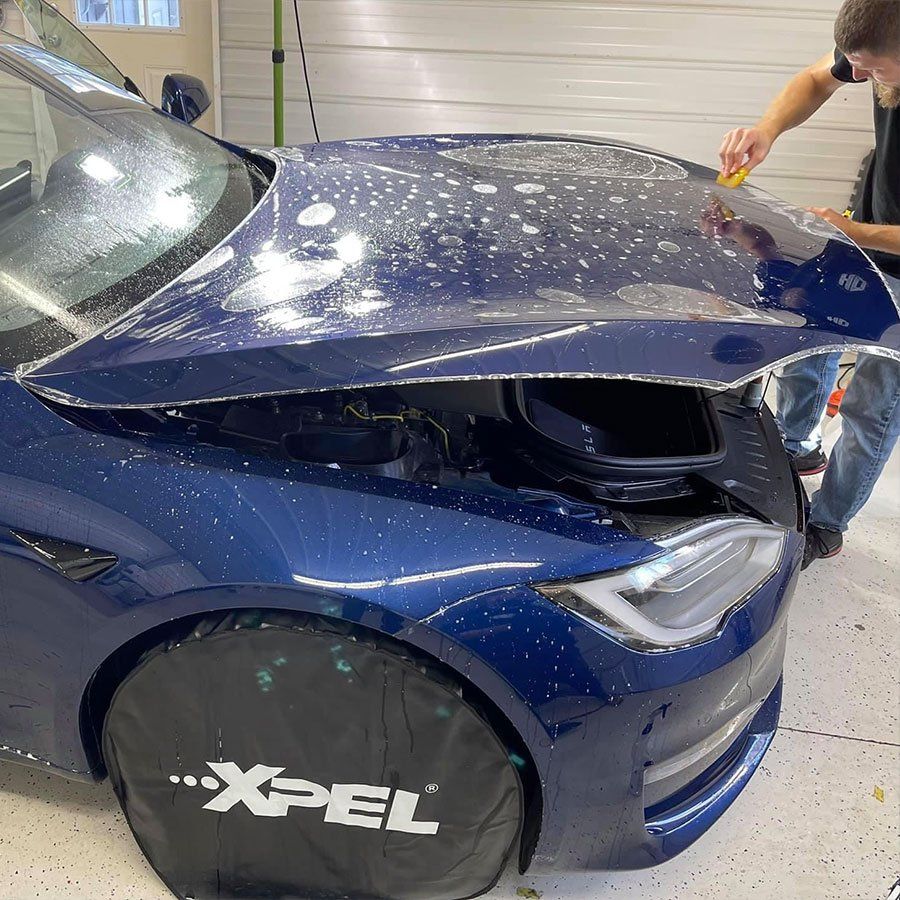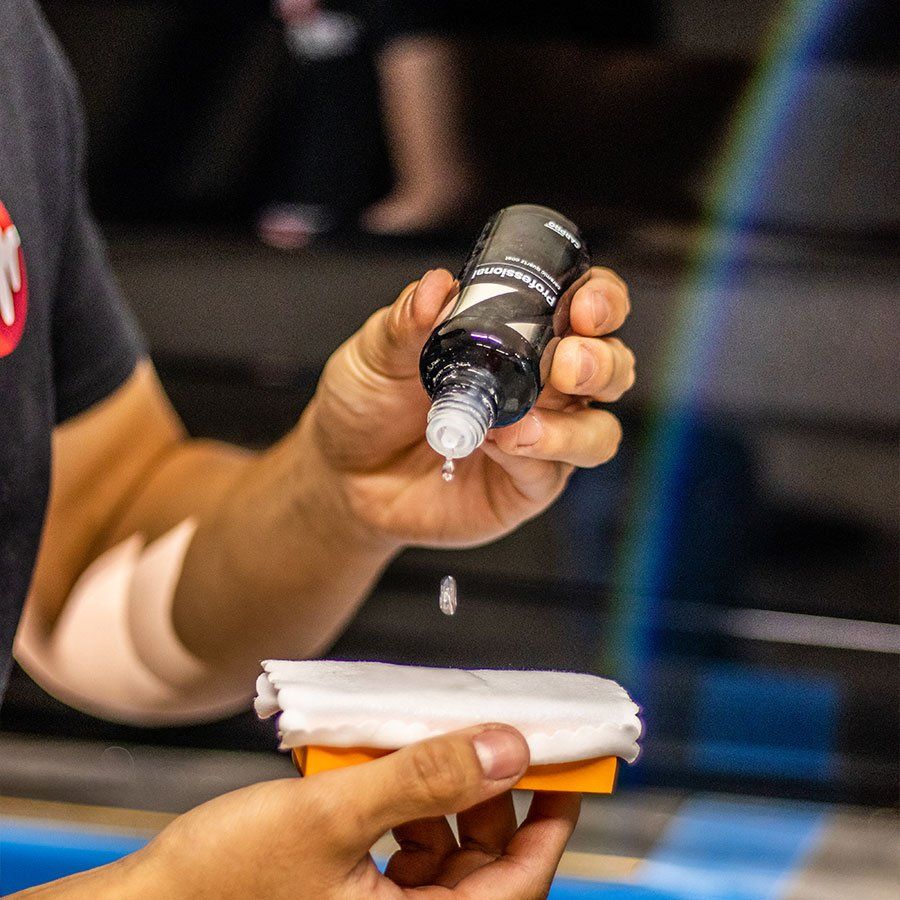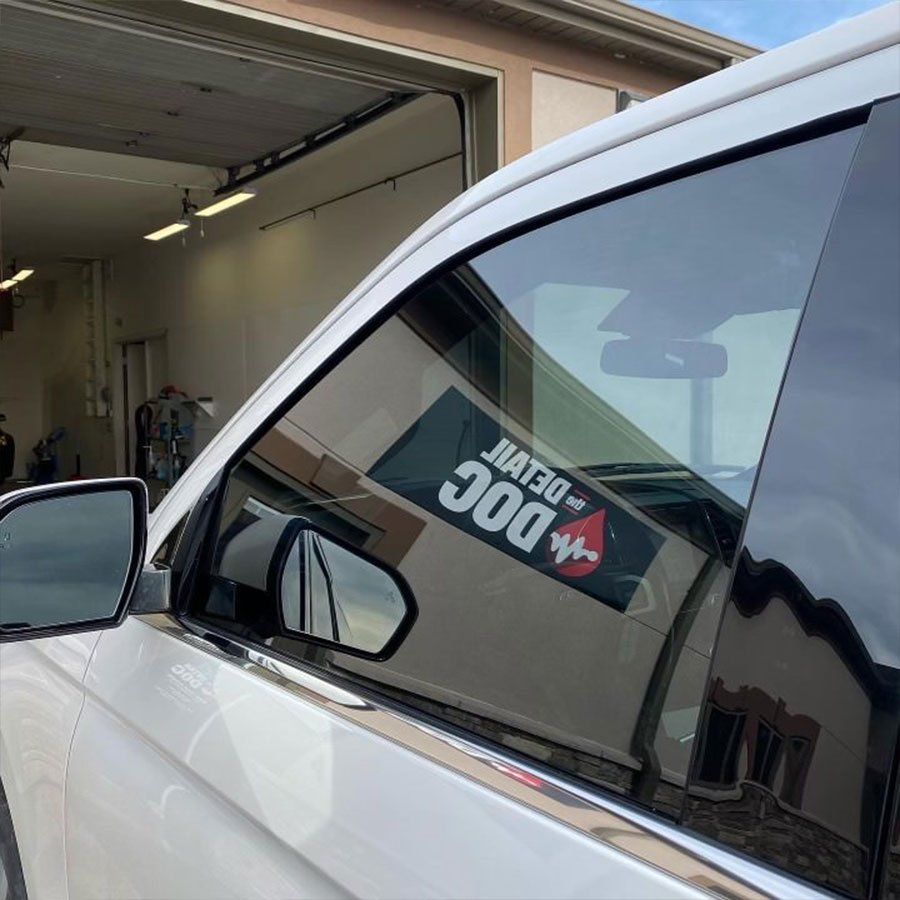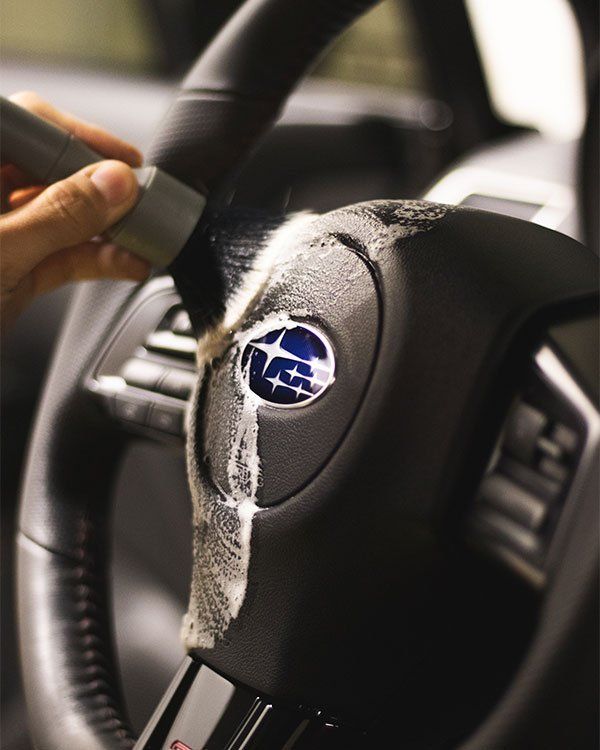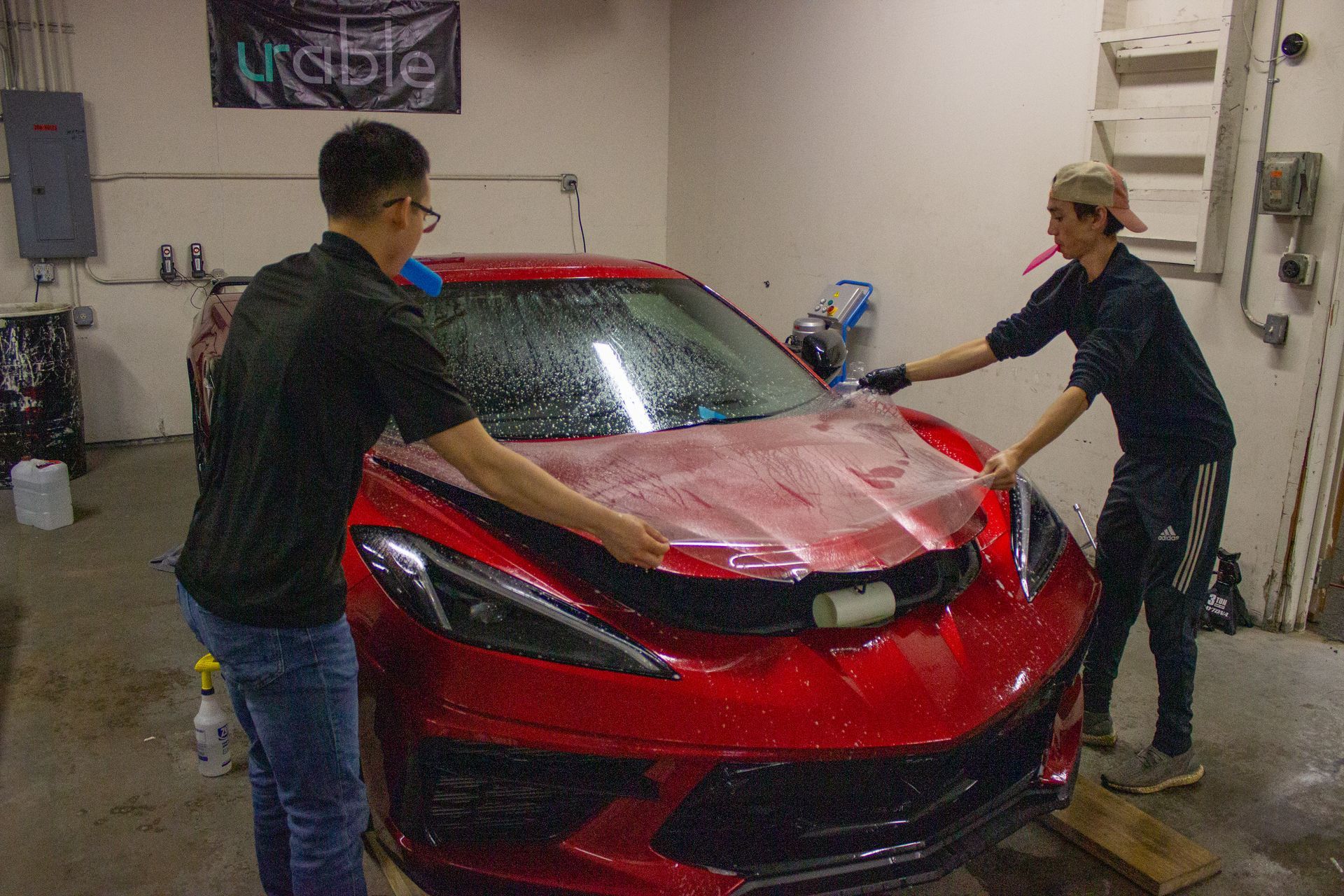The Detail Doc Blog
Ceramic Coating: What Does It Protect Your Car Against?
(989) 244-0505 GET SCHEDULED NOWImagine driving a car that always looks showroom-perfect, undeterred by dust, rain, or even harsh sunlight. It might seem too good to be true, but it's not magic; it's a ceramic coating! A central part of modern car care technology, ceramic coating is revolutionizing the way we protect our vehicles. This innovative solution offers unmatched protection against numerous environmental elements.
Today we dive deep into what this 'armor for your car' actually safeguards against and unveil the myriad benefits it holds. Prepare to rid yourself of the fear of that next tear or stain on your beloved ride! Strap in as we unravel the protective secrets of ceramic coating. Discover what ceramic coating protects against!
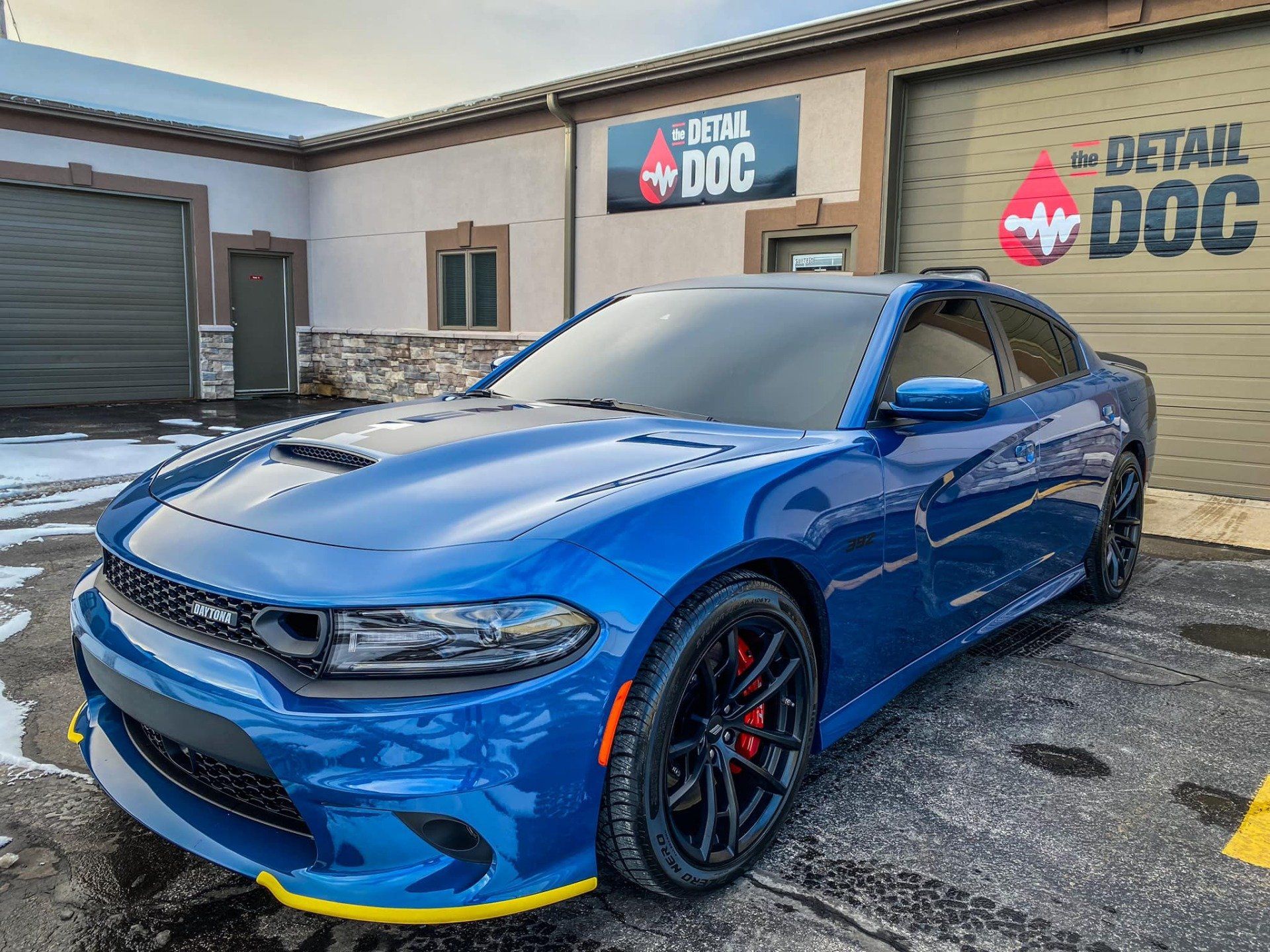
Understanding Ceramic Coating
Ceramic coating has gained immense popularity among car enthusiasts and detailers due to its exceptional protective properties and glossy finish. Understanding the basics of ceramic coating is essential to fully appreciating its benefits and making an informed decision about whether it's right for your vehicle.
When we talk about ceramic coating, we're referring to a liquid polymer that is applied to the exterior surfaces of a car. This coating chemically bonds with the vehicle's paint, creating a protective layer that enhances its appearance and safeguards it against various environmental elements.
The science behind ceramic coatings lies in their composition, which typically includes silicon dioxide (SiO2) or titanium dioxide (TiO2) nanoparticles. These nanoparticles form a hard, transparent shell on top of the paintwork, providing a range of benefits for your car's surface.
- The hardness of ceramic coatings can range from 3H to 9H on the pencil hardness scale, providing excellent resistance against elements.
- According to Gtechniq, their brand of ceramic coatings (used by The Detail Doc) reduces water spotting up by up to 90% when compared to conventional automotive paint finishes.
- A study by the U.S. Department of Energy found that ceramic coatings can reduce surface heat on vehicles by up to 50%, thereby reducing the internal temperature and improving fuel efficiency.
How Does Ceramic Coating Protect Your Car and What Does It Protect Against?
Ceramic coating provides comprehensive protection for your car's exterior, ensuring it maintains a pristine appearance for an extended period. This advanced coating utilizes nanotechnology to form a protective layer that bonds with the paintwork at a molecular level.
Once applied, ceramic coating creates a durable and hydrophobic surface that repels water, dirt, road grime, and other contaminants. This means that rainwater and splashes simply bead up and roll off the surface, while mud and grime are less likely to adhere to your car's paintwork. As a result, you can enjoy easier cleaning sessions and spend less time worrying about stubborn stains or buildup on your vehicle.
Skeptics might argue that regular waxing or polishing achieves a similar effect. While traditional methods like waxing do provide temporary protection and enhance the glossiness of your vehicle, they are unable to match the long-lasting benefits of ceramic coating. Unlike wax, which gradually wears off or breaks down over time, ceramic coatings have superior durability and longevity, offering continuous protection for years rather than weeks.
Let’s have a look what does it protect against:
Ceramic Coating as a Barrier Against Damage
Ceramic coating is a revolutionary solution that provides an exceptional layer of protection for your car's exterior. It acts as a tough barrier against various types of damage, ensuring that your vehicle remains in pristine condition for years to come. So what exactly does ceramic coating protect your car against?
Scratches and Swirl Marks from WASHING
Every time you wash or wipe your car, there is a risk of micro-scratches and swirl marks appearing on the paintwork. These imperfections can detract from the overall appearance of your vehicle. The ceramic coating forms a protective layer on top of the paint, acting as a sacrificial barrier.
UV Rays and Oxidation
Exposure to harsh sunlight and UV rays can cause irreversible damage to your car's paintwork, making it appear faded and dull over time. Ceramic coating contains UV resistant properties that shield your vehicle from these harmful rays, preventing premature color fading or oxidation.
Chemical Stains and Etching
Accidental spills, bird droppings, tree sap, or other chemical substances can leave stubborn stains on your car's surface if not promptly removed. Ceramic coating has hydrophobic properties, meaning it repels water and liquids, making it difficult for stains to penetrate the protected surface. This hydrophobic nature also helps prevent etching caused by acidic contaminants.
Dirt and Water Spot Resistance
Maintaining a clean car is a never-ending battle, especially against dirt, grime, and water spots. With a ceramic coating, these contaminants are less likely to adhere directly to the paintwork. The hydrophobic properties of the ceramic coating cause water to bead up and slide off easily, carrying most dirt particles with it.
Heat and Thermal Resistance
Extreme heat can be damaging to your car's exterior surfaces, causing paint to fade or even warp metal components. Ceramic coatings have excellent thermal resistance, acting as a protective shield against temperature fluctuations and minimizing the potential for heat-related damage.
Longevity of Protection
Unlike traditional waxes or sealants, ceramic coating provides long-lasting protection. With proper care and maintenance, a high-quality ceramic coating can last for several years. This means you can enjoy enhanced durability and protection against a wide range of environmental factors.
Implementing a ceramic coating on your car is an investment in its long-term beauty and protection. It offers benefits that go beyond cosmetic appeal, ensuring your vehicle is shielded from UV rays, chemical stains, dirt buildup, and even heat damage. By providing an additional layer of defense, ceramic coating preserves the value of your car while reducing the need for frequent touch-ups or repainting.
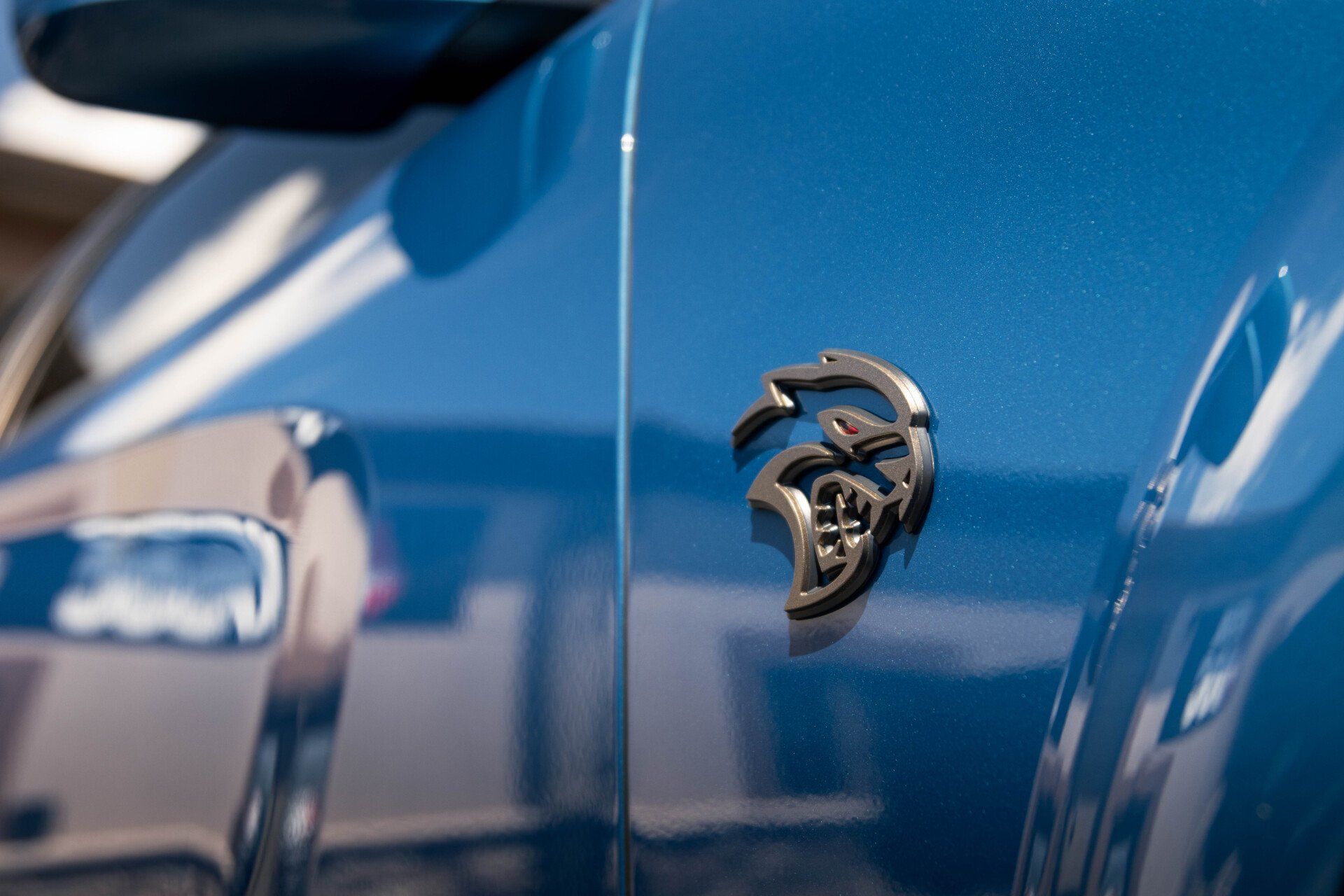
Preventing Corrosion with Ceramic Coating
Corrosion is a significant concern for any vehicle owner, as it can lead to irreversible damage and costly repairs. However, a ceramic coating acts as a barrier against corrosion, effectively minimizing its impact on your car's surface.
Imagine living in an area where road salt is used during the winter months to prevent ice formation. These de-icing salts can be extremely corrosive and wreak havoc on your car's metal components. However, with a ceramic coating applied to your vehicle's exterior, you create an additional layer of protection against these corrosive substances.
Ceramic coatings work by forming a chemically resistant bond with the surface of the paintwork. This bond creates a protective layer that prevents water, contaminants, and pollutants from reaching the underlying metal surfaces. By acting as a shield, ceramic coatings significantly reduce the chances of corrosion formation.
Additionally, ceramic coatings have self-cleaning properties due to their hydrophobic nature. This means that dirt particles or road grime are less likely to stick to the coated surface. As a result, there is less accumulation of debris and moisture on the car's body, reducing the conditions necessary for corrosion to occur.
Think of a ceramic coating as a suit of armor for your vehicle, protecting it from the damaging effects of corrosion.
By preventing corrosion, ceramic coating helps your car maintain its structural integrity and value over time. It allows you to enjoy your vehicle without worrying about rust or erosion, even in harsh weather conditions or areas with high air pollution.
Understanding how ceramic coatings provide protection against corrosion is vital for preserving the appearance and condition of your vehicle's surfaces. With this knowledge, you can confidently invest in a ceramic coating to ensure the long-term health of your beloved ride.
Temperature Resistance of Ceramic Coating
One remarkable feature of ceramic coating is its exceptional ability to withstand high temperatures. This quality makes it an ideal protective shield for your car against the intense heat generated by the sun and other external sources. When your vehicle is exposed to scorching temperatures, such as during hot summer days or long drives under the sweltering sun, the ceramic coating acts as a barrier that minimizes the impact of heat on your car's exterior.
It's no secret that excessive heat can take a toll on your vehicle's paintwork, causing it to fade, crack, or peel over time. The continuous exposure to UV rays and extreme temperatures can accelerate the aging process of the paint, leading to a dull and lackluster appearance. However, with a ceramic coating applied to your car's surface, you gain an extra layer of protection.
Some may argue that parking in the shade or using a car cover can provide sufficient protection against high temperatures. While it's true that these measures can offer some relief, they aren't as effective as a ceramic coating in shielding your vehicle from heat-related damage. The advanced thermal resistance properties of ceramic coating go beyond what simple shading or covering can achieve.
Imagine this scenario: You're on a road trip during peak summer season, and you park your car under direct sunlight for hours while exploring attractions nearby. Without ceramic coating, your car's paint would be subjected to intense heat and harmful UV rays throughout this time. However, if you have a ceramic coating applied, it acts as a buffer against the heat, reducing the risk of thermal damage to your car's exterior.
Now that we've delved into the temperature resistance aspect of ceramic coating, let's explore how this innovative protective solution safeguards your vehicle in various ways.
Ensuring Effective Ceramic Coating Application
Now that we understand the significant advantages of ceramic coating as a protective barrier, it's essential to address the crucial aspect of ensuring effective application for optimal results. The process requires attention to detail and adherence to specific steps to achieve the desired outcome.
Let's consider some key factors that contribute to the effectiveness of ceramic coating application:
Thorough Surface Preparation
Before applying a ceramic coating, it's vital to prepare the vehicle's surface properly. This includes washing and decontaminating the paintwork to remove any dirt, grime, or previously applied products that could interfere with bonding. Additionally, paint correction procedures may be necessary to eliminate scratches or swirl marks for a flawlessly smooth surface.
Correct Product Selection
Choosing the right ceramic coating product is crucial for achieving the desired level of protection and longevity. Different coatings offer varying attributes such as durability, hydrophobic properties, or specific gloss enhancements. Consulting with professionals who specialize in ceramic coatings will ensure you select the most suitable product based on your needs and preferences.
Professional Application Techniques
While there are DIY kits available, it's often recommended to entrust the application of ceramic coating to experienced professionals. Their expertise and knowledge will guarantee correct techniques such as even application, precise curing times, and proper layering. This ensures an optimal bond between the coating and the vehicle's surface for optimum protection.
Post-Application Care
Once the ceramic coating has been applied, it's essential to follow any post-application care instructions provided by the manufacturer or detailing professional. This may include avoiding washing your car for a specified period after application, refraining from using harsh chemicals or abrasive tools, and scheduling regular maintenance routines to preserve the coating's effectiveness.
Ensuring effective ceramic coating application involves careful attention to detail throughout the process. By preparing the surface thoroughly, selecting the appropriate product, employing professional application techniques, and diligently following post-application care instructions, you can maximize the benefits of ceramic coating and enjoy its long-lasting protection.
Final Words
Ceramic coating protects your car against harsh conditions, maintaining its beauty and value while providing unsurpassed UV protection. From repelling dirt and stains to providing UV defense, ceramic coating is truly your car's ultimate protection.
Are you ready to give your car the protection it needs? Take action now by reaching out to our experts at The Detail Doc to schedule a ceramic coating application appointment and experience its transformative powers firsthand!
Schedule Your Ceramic Coating Now at- https://thedetaildoc.co/ceramic-coating-bay-city-mi.

